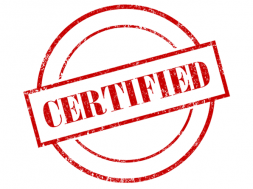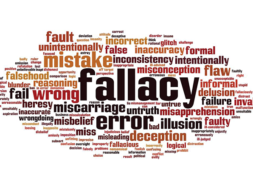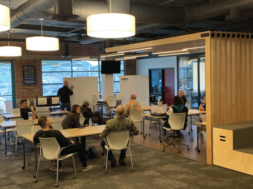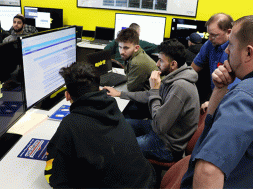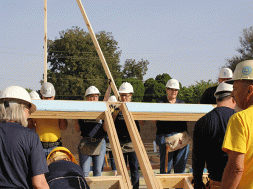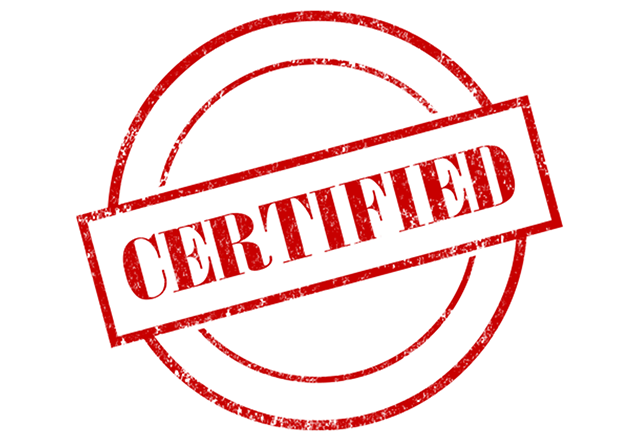
The EEQ CERT: A New Way to Assure and Communicate Program Quality, Relevance, & Value
By Melanie Booth, Ed.D., Executive Director, The Quality Assurance Commons for Higher & Postsecondary Education, reprinted with permission
This article was originally published on the National Institute for Learning Outcomes Assessment website (https://blogs.illinois.edu/view/915/637696).
The Quality Assurance Commons for Higher & Postsecondary Education (The QA Commons) was established in the fall of 2016 to create a new approach to quality assurance that would respond to the changing landscape of higher and postsecondary education and would serve the needs of learners, employers, and our larger society. With funding from Lumina Foundation and in partnership with the National Center for Higher Education Management Systems (NCHEMS), we have researched the landscape and identified the issues, challenges, and opportunities that a new quality assurance approach needs to address.
As a result of our work – and in partnership with 27 academic programs from 14 institutions across the country – we have designed the Essential Employability Qualities Certification, or EEQ CERT. When implemented later this year, the EEQ CERT will certify bachelors, associates, and certificate programs that prepare graduates with the essential employability qualities.
Identifying the gaps
A growing body of research reveals significant gaps between what students learn in higher education and what they need to be successful in career and life.
Students and families continue to express grave concerns about the return on investment of higher education, and the general public has been increasingly skeptical about the meaning and value of postsecondary credentials.
At the same time, employers express dissatisfaction with graduates they hire, indicating that the people they want to employ and need in their workforce must possess a set of qualities that allows them to contribute constructively and meaningfully in the workplace over time. While employers often refer to these qualities as “soft skills,” they are in fact essential qualities, and they are not specific to any discipline, field, or industry. In fact, they are applicable to most work-based environments across the variety of jobs and levels within organizations. These Essential Employability Qualities (EEQs) include people skills such as collaboration, teamwork, and cultural competence; problem-solving abilities such as inquiry, critical thinking, and creativity; and professional strengths such as communication, work ethic, and technological agility.
Whether these gaps are real or perceived, we need a new way to communicate program quality, relevance, and value – a way that addresses graduate preparation for the complex, dynamic world of work of the 21st century.
Addressing & assessing the Essential Employability Qualities
In considering the challenges that a new quality assurance approach needed to address, we recognized the limitations of traditional metrics around graduate employment, namely job placement rates, graduates’ starting salaries, and graduate and employer satisfaction, all of which provide a limited set of evidence about a program’s effectiveness. However, when we focus on employability, then learning – and the demonstration and assessment of learning – matters.
Employability is “the ability to find, create and sustain work and learning across lengthening working lives and multiple work settings.” The EEQs thus represent the knowledge, skills, abilities, and experiences that help graduates be ready not only for their first job, but also for a lifetime of engaging employment and participation in the rapidly changing workforce of the 21st century. The EEQs represent current and future employer expectations as reflected in numerous studies, such as those completed by, LinkedIn, ACT, the Foresight Alliance, Jobs for the Future, Career Tech, the Business Roundtable, O*NET, third way, National Network of Business and Industry Associations, and the Institute for the Future, to name a few.
The EEQs also nicely align with several nationally adopted academic frameworks, including the Degree Qualifications Profile, AAC&U’s Essential Learning Outcomes, NACE’s Career Readiness Competencies, and the Connecting Credentials Framework. By necessity, the EEQs are best developed through direct application; learners must have high impact opportunities in which to develop, practice, and apply their knowledge, skills, and abilities in work-relevant contexts.
Partnering with programs to design a new quality assurance approach focusing on EEQs
Since September 2017, The QA Commons has partnered with 27 programs from 14 institutions to co-design a new way to evaluate program quality that is focused on developing learners’ EEQs. Our partner programs represent approximately 35,000 students and are diverse in their disciplines, degree levels, delivery models, faculty profiles, institutional types, accreditation, student demographics, and locations. This intentional diversity has allowed us to test ideas across multiple educational contexts, to identify possible value-propositions for different kinds of programs, and to learn from the variety of disciplines, fields, and approaches represented. Together we have created, tested, and continue to refine the Criteria for Certification.
The Criteria are both outcome-based and descriptive of high impact practices and conditions for preparing students for employability: 1) All graduates leave the program with assessed demonstration of the EEQs; 2) All students have effective support systems for employability; 3) Employers are engaged in the design, development, and evaluation of the program; 4) Students and graduates are engaged in assuring program quality; and 5) The program provides information about the program and its outcomes to prospective and current students, employers, and the public.
The value of the EEQ CERT
The EEQ CERT provides a significant new way to address several current and emerging needs.
First, it will communicate to prospective students and their families the relevance and value of a given program. Students are looking for a return on their education investment – initially and over time – that leads to better quality of life and a better chance at paying off student debt efficiently. The EEQ CERT will provide third-party validation to reduce risk and increase confidence as students choose a program of study.
It will also give graduates of EEQ CERT programs a way to communicate the quality of their preparation to prospective employers.
The second need that the EEQ CERT will address is a new way to signal to employers that a given program prepares its graduates for the world of work. The EEQ CERT will help make visible quality programs that could become “preferred providers” of talent for employers. The EEQ CERT will give employers a way to identify candidates who are ready to perform at high levels (now and as their jobs change), which could lead to reduced hiring and training costs and improved productivity.
Institutional leaders, including presidents and trustees, need to be able to demonstrate to prospective students, parents, donors, and industry/employer partners that they are meeting their institutional mission and contributing to the public good by preparing their students for employability. Having programs certified by an external third party for Essential Employability Qualities will greatly support efforts in student admissions, retention, completion, and satisfaction; employer and community-based partnership development and satisfaction; and alumni engagement and satisfaction. The EEQ CERT will also provide a form of accountability to public and private investors.
Finally, for many program faculty and administrators, ensuring that students graduate ready and able to apply their academic knowledge is becoming more and more critical. Academic leaders recognize the imperative that their programs be relevant and valuable given the changing world of work. Through encouraging the connection of academic learning to workforce needs and graduate employability, the EEQ CERT will provide insights and resources for groups interested in learning and developing important institutional conditions, program design elements, and teaching and learning practices.
Developing capacity with promising EEQ practices
While the EEQ CERT will serve to address the needs of a variety of stakeholders, we intend that the certification process along with our research about and dissemination of resources can help build program and institutional capacity to implement “high impact practices” and institutional conditions for preparing students for employability.
So far, each of our 27 partner programs has identified numerous promising practices for preparing their graduates with EEQs, including:
- Career development programming integrated across the curriculum and over time;
- Specially designed courses to support students in understanding the world of work and its expectations;
- Experiential learning pathways – required or optional – that allow students to apply their learning in work situations;
- Enhanced student records that convey learners’ EEQ development and outcomes;
- Course-embedded community service projects to allow students to directly apply their learning to real community needs;
- Undergraduate research designed to addresses real problems in an employer’s organization;
- Employer engagement models that go well beyond the traditional Advisory Board into authentic partnerships, or even “employer-attached” curriculum and pedagogy;
- Competency-based badging practices to communicate students’ abilities in visible, verifiable ways;
- Capstone projects that are situated in workplaces and co-taught with employers;
- Use of findings from well-designed alumni surveys, which address not only program satisfaction but also graduates’ sense of preparedness and feedback for program improvement;
- A cross-campus integrated approach to career preparedness through civic engagement;
- Teaching and assessment methods that are designed to develop and address expected EEQ exit proficiencies so all students graduate from the program fully prepared.
These are just a few of the promising practices and conditions that have emerged from the EEQ CERT co-design process, and we are eager to share more in the near future.
As many of our partner programs have illuminated, traditional forms of education and training are no longer sufficient as global and local conditions continually change, technology automates, and people must work differently. Learning approaches that address employers’ defined needs and include experiential and applied opportunities in work-relevant contexts for all students – and that focus on the Essential Employability Qualities – will be more critical than ever in the dynamic world of work of the 21st century. Furthermore, we have confirmed that evaluating program quality on metrics such as job placement and starting salaries leaves significant questions about graduates’ real career preparedness. We believe that by making workforce readiness academically rigorous and a part of all or nearly all curricula and certificate programs, we can assure prospective students and employers that graduates of EEQ Certified programs are ready for employment – now and into their future.
MELANIE BOOTH, since 2016, has served as Executive Director of The Quality Assurance Commons for Higher & Postsecondary Education, a Lumina Foundation funded initiative in partnership with NCHEMS, to create a new model of quality assurance for post-secondary and higher education that serves the needs of learners, employers, and the larger society for the 21st century. Prior to this, she served as Vice President of Educational Programs and Special Assistant to the President for WASC Senior College and University Commission (WSCUC). In this role, Booth developed and led all of the organization’s educational outreach and capacity-building activities, including educational workshops, leadership seminars, learning retreats, the Assessment Leadership Academy and the organization’s annual Academic Resource Conference. From 2005-2013, she was Dean of Learning and Assessment and Director of the Center for Experiential Learning and Assessment at Marylhurst University in Portland, OR. Ms. Booth is a recognized leader on non-traditional adult learners and Prior Learning Assessment/Credit for Prior Learning in higher education. She has consulted with institutions nationally and internationally about the assessment of learning from traditional and non-traditional sources, and is one of the original co-founders of the international Heutagogy Community of Practice.
Contact Information: Melanie Booth // Executive Director // The Quality Assurance Commons // melanie@theqacommons.org // https://theqacommons.org // @QACommons
